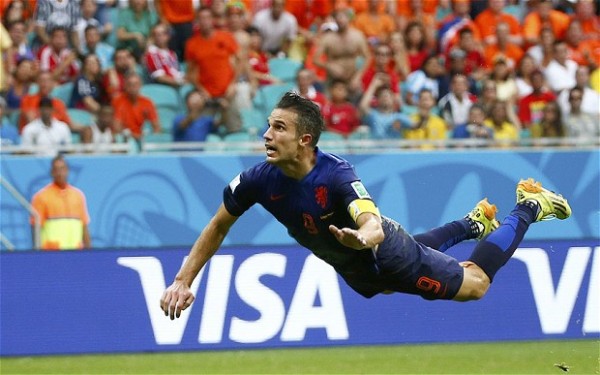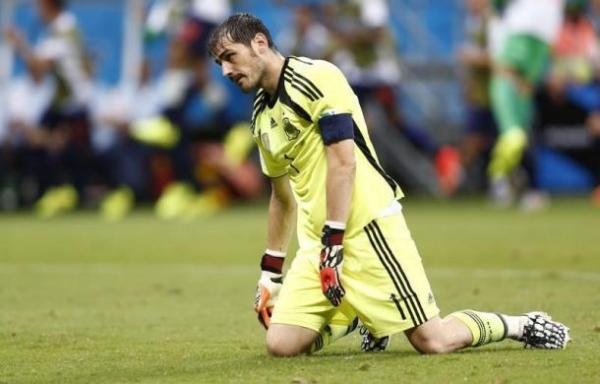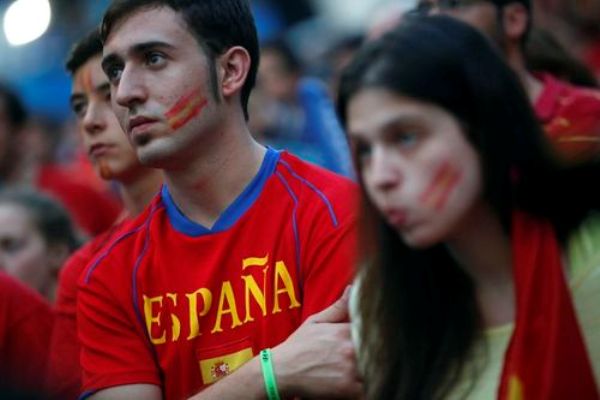On July 11, 2010, in the cauldron of the Soccer City Stadium, Johannesburg, the Spaniards shimmied their way around the unsparing Dutch to win their first world cup, a victory of classy tiki-taka over oafish display.
Four years later, at the Arena Fonte Nova in Salvador, Brazil, we witnessed a Dutch Reconquista. It was a sight of corrida de toros (Spanish bullfighting), where Dutch bulls ran, veered and jostled past Spanish matadors, reducing their morale to dust by netting a cascade of goals.
It was one of the most unforeseen results in FIFA World Cup history. On each of the previous occasions, where a team, that is defending champion, lost the first match in the succeeding World Cup, it didn’t lose by more than a margin of one goal. Last night, however, it was a cosmic rout, signifying the end of an order, even the death of Spanish football as it is currently played. Spain conceded over four times for the first time since 1963.
It was not a typical start for the Spanish team in first few minutes of the game; lacking the usual, silken and dominant football they play. However, the current European and World Champions took a 27th-minute lead through a controversial penalty given to them by Xabi Alonso, after Brazilian-born striker Diego Costa went down under a challenge from Stefan de Vrij. It was near the end of the first half though that the Spanish team started coming into its element.
We were all prepared to witness a 2010 finale repeat.
But during the first half, at the 44th minute, a bird, an aeroplane or Superman, say whatever you like, emerged in form of an airborne Robin van Persie. Daley Blind played a long ball over the top of the Spanish defenders and Van Perise launched like a human projectile heading straight towards the goal. Netherlands left the field at the break, embracing each other with wide smiles and they carried that momentum into the second half.

The second half was perhaps one of the most startling routs of any top-ranked national team in World Cup history. The Dutch poured forward and went ahead after 53 minutes, when Arjen Robben got on the end of another superb blind-lobbed pass before turning Gerard Pique and holding off Sergio Ramos to fire home from seven meters.

The match opened up, but in the Netherlands’ favour with De Vrij stealing in on 64-minutes at the back post to convert a free kick after Van Persie put Iker Casillas under pressure. It didn’t end there though – in fact it only became worse for Spain from then onwards.
In the 72nd-minute, Casillas gifted the ball to Van Persie right in front of the Spanish goal, and as the Dutchman welted the ball in the back of the net, it was as if he had welted a dagger in the Spanish goal keeper’s heart. Robben sealed a 5-1 success with another marvellous individual goal, showcasing dazzling pace to escape the Spanish defending line, rounding Casillas and blitzing the ball into net.

It was an eerie echo for the Spanish team of their 2010 campaign to boot, where they lost the opener to Switzerland and went on to become the first side to raise the Cup after losing an opener. But, even after this match, Spain won’t have it easy: they face a very threatening Chilean side on Wednesday. The Netherlands have, what should be, an easy match earlier on that same day against Australia.
Yesterday’s defeat was a sign of an aging Spanish squad, a squad not of the same zeal as it was in 2010. Spain will have to turn to younger players in next matches to make up for lost goals.

But, for one second, let us sit back and celebrate the Dutch. The match was an enthralling exhibition of magical football by the three forwards: Wesley Sniejder, Van Persie and Robben. They looked like super heroes from a comic book; simply unstoppable, annihilating the reigning champions. It was a sweet victory and great revenge for their 2010 World Cup final loss.
Having emerged as serious contenders for the world cup, after this match, I am going to be rooting for the Flying Dutchman, are you?
No comments:
Post a Comment